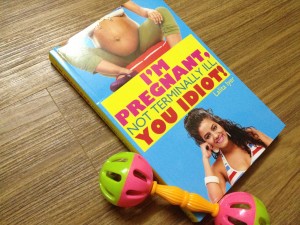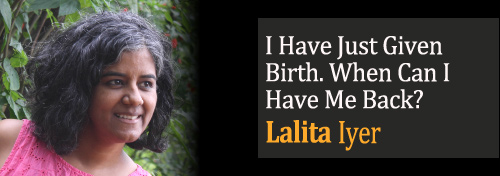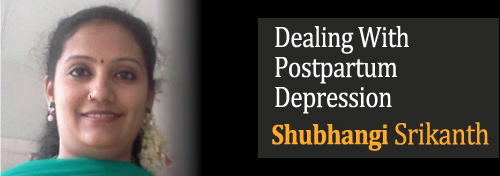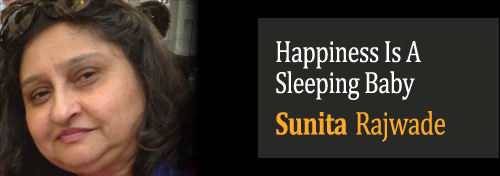I Have Just Given Birth. When Can I Have Me Back?
Popping a baby alters your mind and body in significant ways. It’s easier for the body to get on with the motions: breastfeed, burp baby, rock, clean poo, wash nappie, take a bath, bathe baby, breastfeed, clean poo again, change nappy, breastfeed, eat your lunch, breastfeed, burp, change nappy, oops take a loo break yourself, breastfeed again, burp, sing, make funny faces, clean poo again. This time check colour of poo because you forgot last time, and damn, have you written down how many wet and soiled nappies? So write it down. Wait a minute, where is that bloody diary you wrote in yesterday?
It’s harder on the mind though. You do not automatically turn into mother mode the second after you give birth – there is angst, conflict, confusion, sometimes leading to depression – commonly referred to as PND (postnatal depression) or more commonly, PPD (postpartum depression). You will perhaps be shocked that none of those manicured baby books that taught you how to fold a nappy or what to pack in the hospital bag ever mentioned PND.
Here’s why PND happens:
Birth trauma, too many interventions, loss of control: Maybe things didn’t go as planned, and maybe your birth plan went out the window when the baby’s heart rate dropped and the ob-gyn decided to induce labour. Or something equally random happened and you gave birth in a not-so-happy fast-forward way.
Exhaustion and sleep deprivation: Giving birth is hard work, and then getting into auto-pilot work mode after it, as primary caregiver and food source is even harder. And if you were thinking of catching up on sleep, now that the baby is out, forget about it. What were you thinking?
Anti-climax: Now that the baby is out, it’s all about him. No one is concerned about you. It hurts being sidelined, and not getting any presents.
Anxiety about coping and desire to be perfect: Putting undue pressure on yourself to be the perfect mom doesn’t work, because you always feel you could do better. Whatever you may have read, motherhood comes by instinct and it’s best to let it stay that way. We all get there eventually, and this is no time to be competitive.
Postnatal disorders: All your body parts will protest against the upheaval of birthing, sometimes individually, sometimes in unison. So you may have back pain, wobbly fingers, tightness or itchiness around C-section stitches, mastitis, painful episiotomy stitches that make it difficult to sit, constipation, haemorrhoids, or a combination thereof.
No exchange, no refund: Having a baby is an irreversible process – there’s no going back now, and suddenly motherhood may seem very overwhelming.
Very often, the blues are from body image – not being able to claim one’s body back soon after, figuring out that pregnancy fat doesn’t disappear when the baby comes out. Plus, you always have to think of ‘is-it-nursing-friendly?’ whenever you choose to wear anything. Your hair is a mess and there’s not much you can do about it, you need a wax real bad, but don’t know when to get it, you probably smell of baby stuff when you go out, and even a movie date with a friend requires logistical planning of the highest kind. Many women also sense a loss of control over career, whether you choose to go back to work or stay at home. To top it, your libido has evaporated!
Some of us cope by talking to others, especially women who have been there before. Others might just withdraw into a shell and disappear for months, and you don’t even realize they had sunk into depression. Most women carry their post-birth angst as a huge burden, never voicing it, or feeling it is inappropriate to.
Sometimes the postpartum blues continue for a few years after the baby is born, but in most cases they are an on and off thing. On days when you are feeling extremely low, and you happen to hang out with a group of women whose chief preoccupation in life is getting their nails and hair done, sipping Cosmopolitans, buying prêt-couture, tagging photos or updating their relationship status on Facebook – you wonder, where has your life gone? When did the baby become the single most important thing in it? Most importantly, where is the you in you?
Soon, the husband gets back to work and the visitors stop coming and then you are all on your own. This is when the calls stop coming, the initial baby pictures have been posted or emailed and the cooings and the gushings have stopped. Suddenly, the text messages reduce to a trickle and no one calls you except for mommies who perhaps birthed the same time as you. Friends who didn’t show up at the hospital make their ‘Call-if-you-need-anything’ call. This actually means nothing. What you really need is friends who show up, spend a few hours with you, bring you food or cook a meal for you, are willing to watch the baby, walk it or rock it for a bit, or just do anything that makes your life a wee bit easier. Even if it is for an hour.
Most friends take the easy way out. ‘I thought you might be busy, so I didn’t call.’ Or ‘I didn’t want to intrude.’ Or act surprised. ‘You texted back?’ I felt like saying, this is my only link to the outside world, and besides, I can always manage one free hand. For a new mom, no friend can be intrusive, provided he or she is there, in person, with enough time and patience and you are not en route to something more exciting. ‘I will just drop by for a bit’ is not good enough.
Sometimes, all you need is a friend who was thoughtful enough to gift you a postpartum spa package. Or a massage. Or an hour of peace and quiet, with your feet up, and some music, while she watches the baby. Perhaps a pedicure? Or just time with you. Anything to take your mind off the postpartum discomfort or blues.
The thing about pain management is that it’s like a one-night stand. Epidurals have short lives. It’s like a lover who is not around for the rough road ahead. He’s gone by the time you wake up.
And yet, women are stoic about post-partum angst.
Well there are reasons and there are theories, and it’s all a bit complicated and layered. But here is mine. As women, we have historically been conditioned not to voice our pregnancy or post-birth angst. To be in denial about our pain and to carry its burden, quietly, uncomplainingly, stoically. It’s what mothers do, we are told.
Women have been taught to ‘numb the pain’ through centuries. It’s something everyone goes through, something that is not meant to be expressed, something to be internalized, something to be fought and won over, but never talked about. It is as though pain is our lot.
And so mothers are in mourning for the longest time. Until someone picks on a scab, and it all comes gushing out. Every woman thinks she will be the odd one out if she appears anything less than ethereal after having given birth. More so if she whines or expresses anger at the state of things, at being short-changed, at feeling dis empowered during childbirth.
She is so wrong. Even Julia Roberts and Angelina Jolie came out of the hospital looking and feeling like wrecks. Just that no paparazzi shot them, for fear of being sued by the celebrities.
And yet, every woman wants to believe that she is one-up in the motherhood curve, that she has won, conquered her demons, achieved her milestones, overcome her hurdles, and has, most importantly, turned from woman to mother.

Lalita Iyer is the Managing Editor of Filmfare and the author of I’m Pregnant, Not Terminally Ill, You Idiot!. She wrote columns on parenting, gender and food for Indian Express, HT Café and Times Crest. She earlier worked as Deputy Editor for Hindustan Times and Assistant Editor for Man’s World, post running away from advertising. She lives in Bombay with one husband, one child, two cats and too many gadgets. She tweets as @Lalitude, blogs on mommygolightly.wordpress.com.


